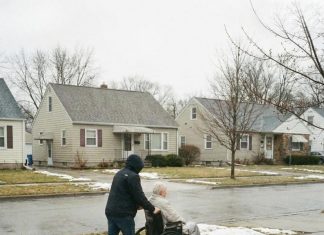Pierre Reginald Boulos: Arrest and Its Implications
Pierre Reginald Boulos, a Haitian national who has been residing in the United States as a lawful permanent resident, was recently apprehended by U.S. Immigration and Customs Enforcement (ICE). This arrest, which took place in Miami, was executed under serious allegations of his involvement in Haitian gang activities and immigration fraud. Boulos is currently in custody as authorities investigate his connections to the notorious gang known as Viv Ansanm, which has been designated as a foreign terrorist organization. The arrest of Boulos has sparked a myriad of discussions surrounding immigration policies, national security, and the complex nature of gang violence in Haiti.
According to ICE officials, Boulos is suspected of providing crucial support to Viv Ansanm, an organization implicated in various violent activities that have further exacerbated the instability in Haiti. The implications of his arrest extend beyond individual legal troubles; they touch upon broader issues of national security and U.S. foreign policy in the region. The destabilization of Haiti is a pressing concern for U.S. policymakers, who must balance humanitarian interests with security measures aimed at curbing the influence of gangs that threaten the safety of both Haitians and Americans alike. This intersection of immigration and security underscores the challenges that arise when trying to maintain an open and welcoming society while simultaneously addressing legitimate safety concerns.
Context of Boulos’s Arrest
The charges against Boulos are notably linked to his alleged failure to disclose vital information during his immigration proceedings. This omission raises significant questions regarding the vetting processes employed by U.S. immigration authorities. It is essential to understand that the backdrop of gang violence in Haiti has prompted many individuals to flee to the United States, seeking refuge and a better life. However, instances like Boulos’s highlight the complex challenges that arise when individuals with potential ties to criminal organizations attempt to navigate the immigration system. For many, the decision to migrate is not taken lightly; it is often driven by desperation and a clear desire for safety, which makes the immigration process all the more critical.
Viv Ansanm, the gang with which Boulos is allegedly associated, has garnered notoriety for its violent tactics and is suspected of being involved in various crimes, including kidnappings, extortion, and drug trafficking. The gang’s operations have contributed to a drastic decline in safety in Haiti, forcing countless citizens to live in fear. Reports indicate that gang violence has surged in recent years, leading to displacement, loss of livelihood, and increased vulnerability among the Haitian population. U.S. officials have taken a keen interest in organizations like Viv Ansanm, as their activities not only threaten regional stability but also have the potential to impact U.S. soil through the proliferation of crime and drug-related issues, further complicating the already intricate relationship between the two nations.
U.S. Foreign Policy Considerations
The arrest of Boulos could serve as a pivotal moment in shaping U.S. foreign policy toward Haiti. As the U.S. grapples with its role in international affairs and the ongoing crises faced by neighboring nations, actions such as this one may lead to a reevaluation of strategies surrounding immigration and security. The complexities of foreign interventions versus supporting humanitarian efforts pose a challenging dilemma for policymakers. The situation is further complicated by the need to ensure that any approaches taken do not inadvertently empower gangs or exacerbate the suffering of the civilian population. This delicate balancing act necessitates a nuanced understanding of the socio-political landscape in Haiti and how U.S. involvement can either mitigate or exacerbate existing issues.
Moreover, the implications of Boulos’s arrest might extend to diplomatic relations between the United States and Haiti. As U.S. officials continue to monitor gang activity, it is crucial to consider the socio-economic conditions that contribute to such instability. Addressing the root causes of gang proliferation could involve collaboration with Haitian authorities and support for grassroots initiatives aimed at rebuilding communities. For instance, investing in education, job creation, and infrastructure development could provide a sustainable alternative to gang involvement, ultimately contributing to long-term stability. Failure to do so may perpetuate a cycle of violence and instability, ultimately driving more individuals to seek refuge in the United States, thereby further complicating immigration dynamics.

















